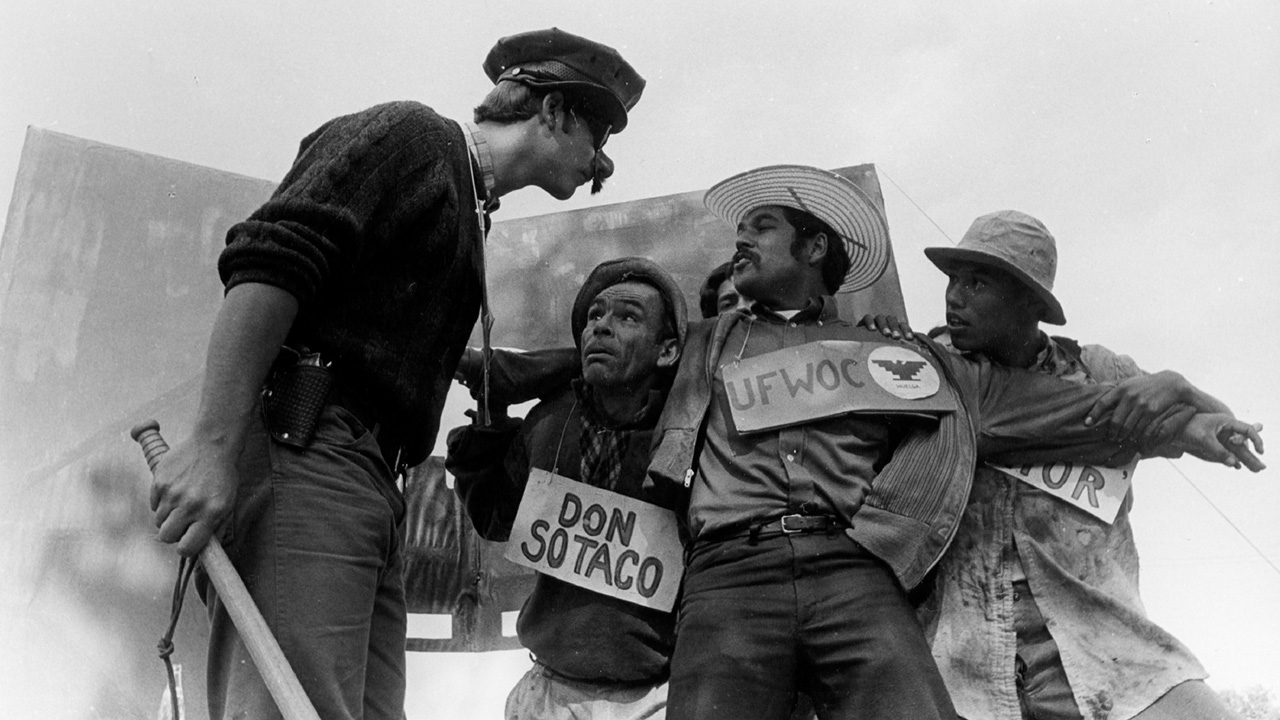
POV
Emergent City
Grappling with a new development project, residents in a Brooklyn community stare down the triple threat of climate change, deindustrialization, and gentrification.
A celebration of Luis Valdez, whose influential work in theater and film reflects the struggles and triumphs of the Mexican-American community.


David Alvarado is an award-winning documentary filmmaker, focusing on biographies in science, health, and the arts. His past PBS work includes Bill Nye: Science Guy (POV), Matter of Mind (Independent Lens), Blood Sugar Rising (WGBH), and Secrets in your Data (NOVA). He lives in Brooklyn, New York.

Lauren DeFilippo’s acclaimed documentaries have premiered at TIFF, Sundance, and SXSW and are currently streaming on PBS, Hulu, and Netflix. Her work is driven by a deep commitment to storytelling with empathy, aiming to shape the collective future we’re building for ourselves, one film at a time.

Brenda Avila-Hanna is a Mexican filmmaker and educator whose work connects to the complexities within transnational identities. She is a Sundance Producers Lab Fellow, a recent Rockwood/Just Films Fellow and a DOC NYC Documentary New Leader. She is a board member of the Watsonville Film Fest and a professor at UCSC.
Learn more about funding opportunities with ITVS.
Born into a migrant farmworker family in California, Luis Valdez grew up feeling alienated in the United States. He was inspired to create El Teatro Campesino, "The Farmworker's Theater,” which played a significant role in history. It became the cultural wing of the United Farm Workers movement (UFW), alongside the activist work of Cesar Chavez and Dolores Huerta.
Valdez and his volunteer company mobilized migrant farmworkers around the right to collective bargaining. Performing atop flatbed trucks and combining agitprop theater with comedy and satire, their approach empowered a disenfranchised community. The UFW forced landowners to agree to the first-ever union contract for U.S. farmworkers.
Valdez's creative journey continued with "Zoot Suit," Broadway’s first Chicano play, recognized today as a revolutionary work of theater. Yet critics at the time denounced its lack of appeal to wider audiences, and the play soon closed. Despite this setback, Valdez remained committed to sharing Chicano stories. In the early 1980s, Valdez wrote and directed La Bamba, a low-budget film about the tragedy of Chicano pop star Ritchie Valens. This portrait of a migrant Mexican-American family became a Hollywood blockbuster and made a mark on American culture.
After La Bamba, Valdez’s artistic endeavors continued in various, and sometimes unconventional, ways. His poetry, considered an important part of Mexican-American studies, connects Indigenous wisdom to Chicano liberation. He writes, directs, and mentors emerging creators while maintaining the work of El Teatro Campesino, now 60 years old. The Ballad of Luis Valdez celebrates a people’s quest for recognition and inclusion.
We’ll send you funding deadlines, events, and film news.
Connect with us now at itvs@itvs.org.